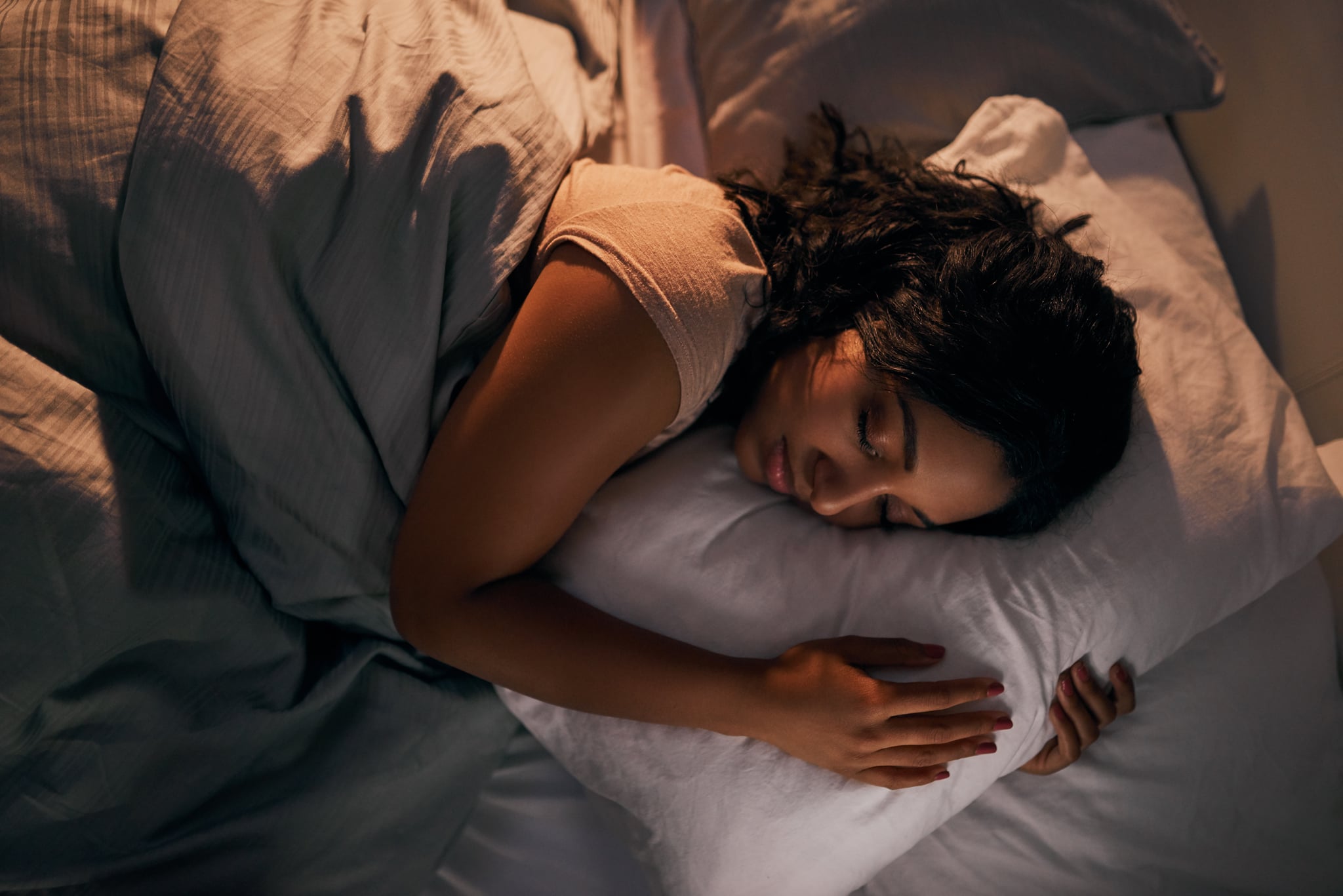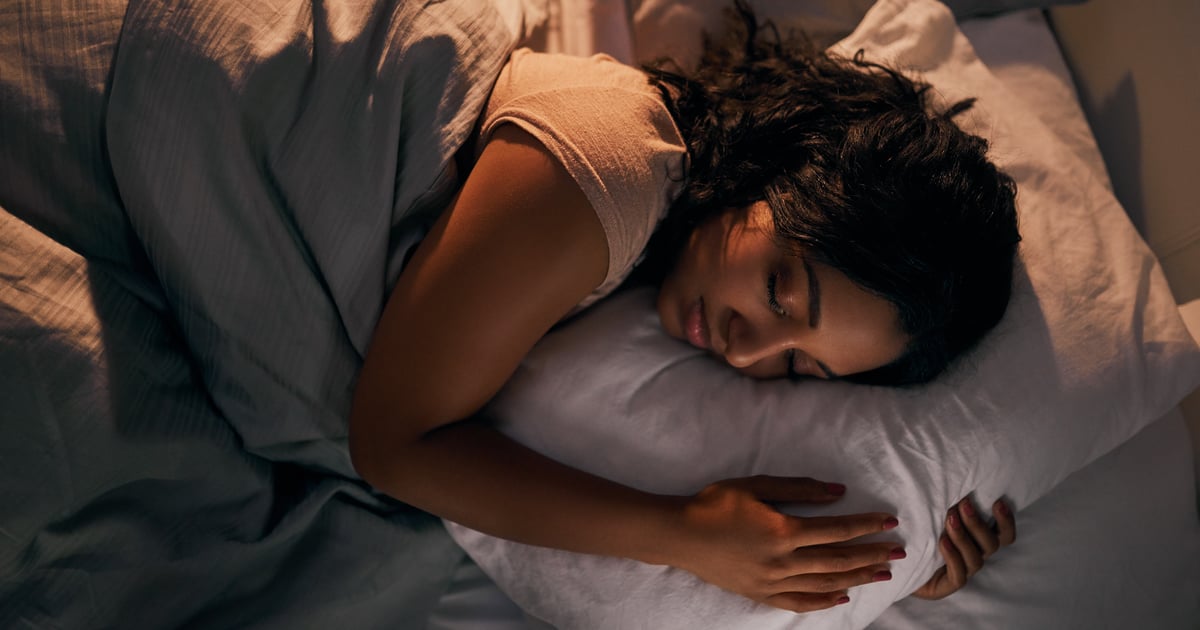
Despite how much I look forward to sleeping every day, it can be so hard to make myself go to bed. I always get sucked into the latest drama on Twitter or yet another true crime documentary — and suddenly, the idea of getting to bed on time feels like a distant memory. I’ve known for some time that the blue light from my devices can mess with the body’s circadian rhythm, making it harder to fall asleep. But even after I stopped sleeping with my phone in my room, I wondered if there was more I could do. Is there another type of light that would make it easier to fall asleep?
Turns out, there just might be. “Research suggests that red light may help promote sleep by stimulating melatonin production in the body,” Nagendra Gupta, MD, FACP, CPE, internist at Texas Health Arlington Memorial Hospital, told POPSUGAR. The hormone melatonin helps regulate sleep, by signaling to the body when it’s time to go to bed. Light can have such an impact on this natural process that the National Sleep Foundation recommends installing color-changing lightbulbs that can transition to warm red hues when it’s time for you to wind down.
Why does the color of light hold such power? According to Dr. Gupta, the retina of the eye houses highly specialized photoreceptors that are particularly sensitive to blue and white light. “Blue light stimulates certain parts of the brain that can make us feel more alert, [while] also suppressing the release of melatonin, which is a hormone known to promote sleep,” Dr. Gupta explained. “Hence, exposure to blue light at night can trick our brain into thinking that it is daytime and cause disruption of our circadian rhythms, and in turn, disrupt our sleep.” These same cells are much less sensitive to warmer colors such as orange and red, “which result in an increase in melatonin production and thus promote good sleep,” he said.
Of course, there’s more you can do to make falling asleep (and staying asleep!) easier. In addition to limiting blue light — and increasing your exposure to red light — Dr. Gupta recommends going to bed and waking up at the same time every day, which he says is “the single most important thing” you can do to maintain good sleep hygiene. You should also avoid caffeine or alcohol in the hours just before bed in order to get more restful sleep.
